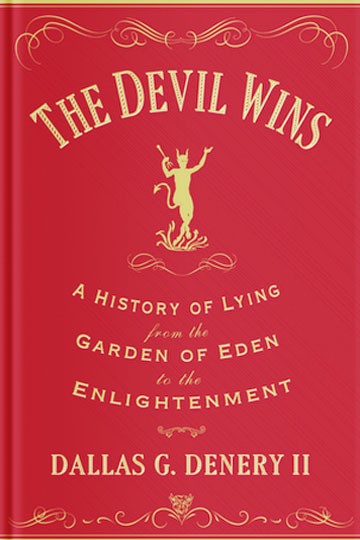
- Publisher: Princeton University Press
- Available in: Hardcover
- ISBN: 9781400852079
- Published: January 18, 2015
Is it ever acceptable to lie? This question plays a surprisingly important role in the story of Europe’s transition from medieval to modern society. According to many historians, Europe became modern when Europeans began to lie—that is, when they began to argue that it is sometimes acceptable to lie. This popular account offers a clear trajectory of historical progression from a medieval world of faith, in which every lie is sinful, to a more worldly early modern society in which lying becomes a permissible strategy for self-defense and self-advancement. Unfortunately, this story is wrong.
For medieval and early modern Christians, the problem of the lie was the problem of human existence itself. To ask “Is it ever acceptable to lie?” was to ask how we, as sinners, should live in a fallen world. As it turns out, the answer to that question depended on who did the asking. The Devil Wins uncovers the complicated history of lying from the early days of the Catholic Church to the Enlightenment, revealing the diversity of attitudes about lying by considering the question from the perspectives of five representative voices—the Devil, God, theologians, courtiers, and women. Examining works by Augustine, Bonaventure, Martin Luther, Madeleine de Scudéry, Jean-Jacques Rousseau, and a host of others, Dallas G. Denery II shows how the lie, long thought to be the source of worldly corruption, eventually became the very basis of social cohesion and peace.
Dallas G. Denery II is associate professor of history at Bowdoin College. He is the author of Seeing and Being Seen in the Later Medieval World: Optics, Theology, and Religious Life and the coeditor of Uncertain Knowledge: Scepticism, Relativism, and Doubt in the Middle Ages.
Reviews:
“[The Devil Wins is] an informative, sophisticated, and thought-provoking account of the efforts of theologians and philosophers from the early Christian era to the Enlightenment to define lies and understand their ethical, social, and political implications.”–Glenn Altschuler, Psychology Today
“Denery explores analyses of an enormous variety of deceptions, and does so with an erudition that is never pedantic or monotonous. He is an entertaining writer, with a healthy skepticism about the dogmatic condemnation of lying as always, or even mostly, morally blameworthy. . . . I think Nietzsche would have loved this book.”–Clancy Martin, Chronicle of Higher Education
“The Devil Wins is a learned and accessible introduction to a fascinating subject.”–Biancamaria Fontana, Times Higher Education
“What emerges through all five chapters is a fascinating trajectory that takes us from a time when lies were considered by some theologians to be absolutely and categorically sinful, to an age when it was widely accepted that modern society depended on them . . . well researched, fluidly written, and persuasively argued.”–Hans Rollman, PopMatters
“The Devil Wins is an enjoyable and well-written book, a serious contribution to what might constitute a history of the complicated elements of culture and society that enable people to tell lies.”–Andrew Hadfield, Textual Practice
“Denery . . . has written an impressively clear account of a difficult group of subjects, cleaving mostly to familiar figures but taking the time to get to know them properly.”–Anthony Ossa-Richardson, Intellectual History Review